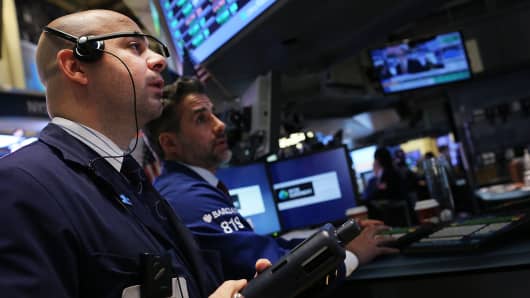As the rally in global equity markets continues – with the S&P 500 closing at a fresh high on Wednesday - Rosenblatt Securities' Brian Reynolds warned that the index is still some way off the 2,500 level.
"We've pointed out that the credit market has been acting as if the S&P is already well over 2,500, but the stock market takes longer to get where it's going than the credit market does; this is because the equity market has traders who are trained to sell overbought rallies and buy oversold dips, unlike credit," he said in a research note.
"So, if the current trend were to continue, the S&P would get to the 2,500 area sometime around 2017, which is in-keeping with our main theme of this credit boom still having another 2-5 years left."
(Read More: Sellers Starting to Emerge in the Bull Market)
Significant monetary stimulus from major central banks has for months boosted global stock markets. On Wednesday, the S&P 500 gained 8.44 points to close at 1,658.78 – the 15th time it has reached a fresh high this year. The Dow Jones Industrial Average also set a new record, ending the day up 60.44 points at 15,275.69.
But Reynolds, the brokerage's chief market strategist, said the credit-led equity bull market had "gotten a little above trend".
"The larger risk that equity investors face is that the bull market will accelerate while they are underweight stocks," Reynolds said.
(Read More: Soros Cut Gold ETF Holdings Before Price Crash)
He added that the current credit boom would be longer and more intense than the one seen between 2003 and 2007, and said that when the Federal Reserve tightens its monetary policy there will be a large stock market correction.
"The Meriwether-type credit hedge funds will view the rise in yields as another buying opportunity, once the dust settles, because there is so much more pension money to be put to work, unlike in 2007," he said.
"That raises the potential for the trend of this bull market to shift up. We don't think there are very many equity portfolios that are set up for this possibility, so an escalation of the uptrend may be the biggest risk that equity investors face."
(Read More: Flurry of Fed Speakers to Guide Markets)
- By CNBC's Katrina Bishop, follow her on Twitter @KatrinaBishop



